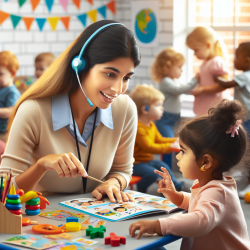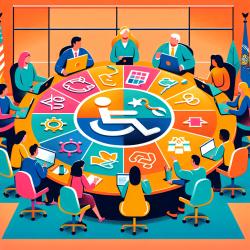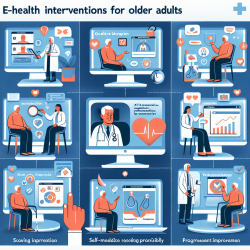The journey of language development in children is a complex and multifaceted process, even more so for those growing up in bilingual environments. Recent research, including the pivotal study by Nicoladis and Genesee, offers invaluable insights into the nuances of bilingual language development during the preschool years. This article aims to shed light on these findings and provide practical guidance for speech-language pathologists and educators working with bilingual preschoolers.
Understanding Bilingual Language Development
Contrary to common misconceptions, bilingual children do not experience significant delays in language milestones compared to their monolingual peers. Studies have shown that when both languages are considered, bilingual children's language development milestones align closely with those of monolingual children. This includes the timing of first words and the expansion of vocabulary.
One of the most fascinating aspects of bilingual language development is code-mixing - the use of elements from both languages within a single utterance or conversation. Far from indicating confusion, code-mixing is a normal part of bilingual language development. It reflects the child's growing proficiency and comfort with both languages.
Clinical Implications for Speech-Language Pathologists
Speech-language pathologists play a crucial role in supporting bilingual children's language development. Understanding the normal variations in bilingual acquisition is essential to distinguish between typical bilingual development and potential language disorders. Here are several key considerations for practitioners:
- Comprehensive Language Assessment: Evaluating a bilingual child's proficiency in both languages is crucial. A child may exhibit stronger skills in one language, which could mask difficulties in the other. Assessments should be culturally and linguistically appropriate to capture an accurate picture of the child's abilities.
- Recognizing Normal Variations: Code-mixing and varying degrees of proficiency between languages are typical aspects of bilingual development. These should not be hastily interpreted as signs of a language disorder.
- Supporting Both Languages: Encouraging development in both languages offers cognitive and academic benefits for bilingual children. Speech-language pathologists should work closely with families to support language development in the home and educational settings.
- Cultural and Sociolinguistic Awareness: Understanding the cultural and sociolinguistic contexts of bilingual families is vital. This awareness can inform more effective communication strategies and interventions that respect the child's linguistic heritage.
Encouraging Further Research and Collaboration
The field of bilingual language development is dynamic, with ongoing research uncovering new insights. Speech-language pathologists and educators are encouraged to stay informed about the latest findings and to collaborate with families and other professionals. By doing so, they can ensure that bilingual children receive the support they need to thrive linguistically, academically, and socially.
In conclusion, the research by Nicoladis and Genesee underscores the importance of recognizing the typical patterns of bilingual language development. Speech-language pathologists and educators can play a pivotal role in supporting bilingual children's language journey. By embracing evidence-based practices and fostering an environment that values bilingualism, we can help bilingual children achieve their full linguistic potential.
To read the original research paper, please follow this link: Language Development in Preschool Bilingual Children.










